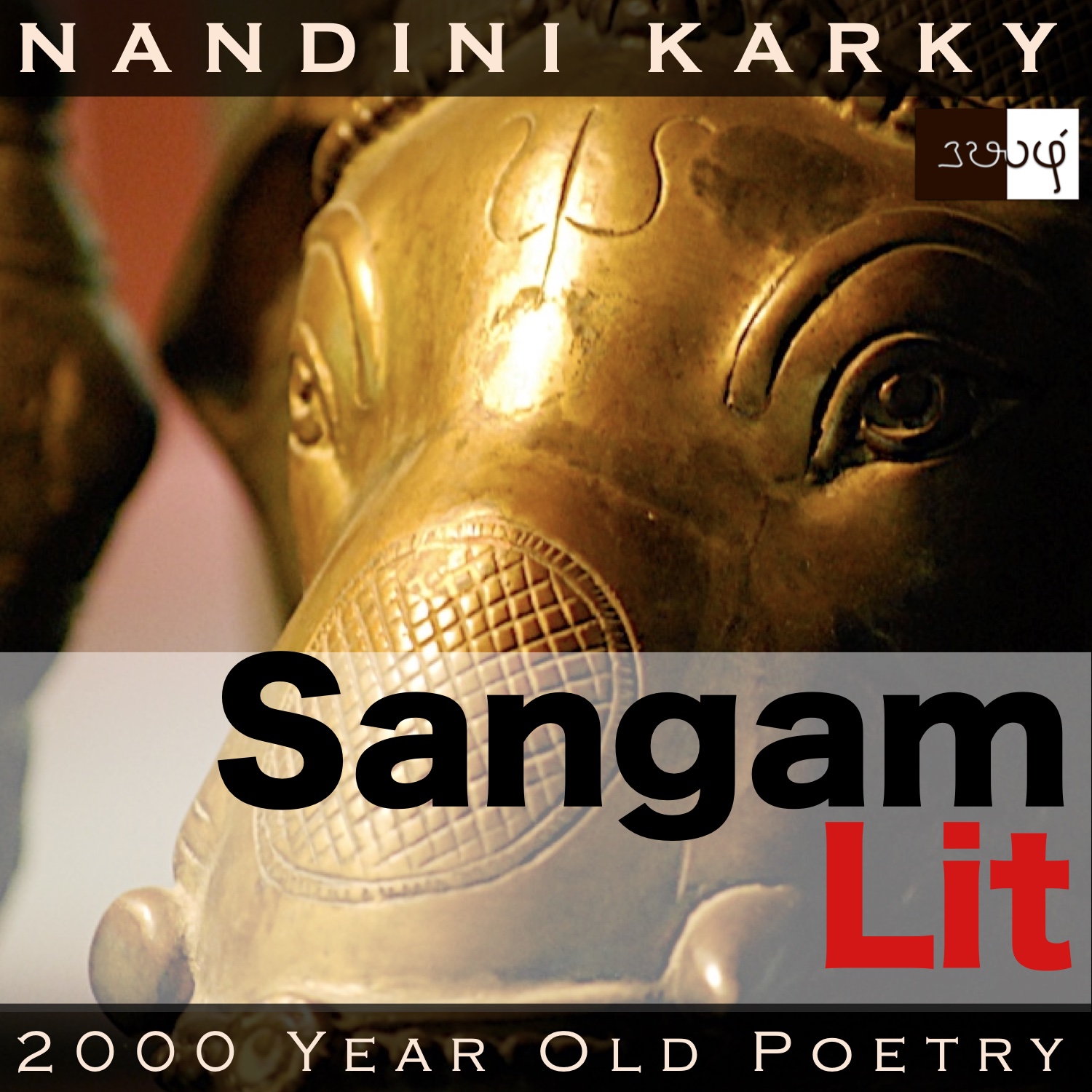Podcast: Play in new window | Download
Subscribe: Apple Podcasts | Spotify | Amazon Music | Android | iHeartRadio | TuneIn | RSS | More

In this episode, we perceive the excitement in receiving a much-expected news, as portrayed in Sangam Literary work, Kurunthogai 75, penned by Padumaraththu Mosi Keeranaar. Set in the farmlands of ‘Marutham’, the verse speaks in the voice of the lady to the singer-messenger, in response to his words about the man’s arrival.
நீ கண்டனையோ? கண்டார்க் கேட்டனையோ?-
ஒன்று தெளிய நசையினம்; மொழிமோ!
வெண் கோட்டு யானை சோணை படியும்
பொன் மலி பாடலி பெறீஇயர்!-
யார்வாய்க் கேட்டனை, காதலர் வரவே?
‘Are you sure? Is it true’ echoes aloud here! The verse opens with the words ‘நீ கண்டனையோ? கண்டார்க் கேட்டனையோ?’, two probing questions meaning ‘Did you see? Or did you hear from someone who saw?’ and gives a sense of someone probing the depths of another’s words. From an investigative mode, the verse switches to a descriptive one in ‘வெண் கோட்டு யானை’ meaning ‘white-tusked elephant’ as well as the historically renowned town of ‘Patali’, referring to the city known in Indian history as ‘Pataliputra’, situated near the current-day city of Patna in the Indian state of Bihar. Ending with the words ‘காதலர் வரவே’ meaning ‘the beloved’s return’, the verse echoes with the joy in someone’s arrival.
What does a historic city have to do with a hero’s homecoming? Let’s explore the context to find out! The man and lady were leading a happy married life when the man parted away on a mission. In his absence, the lady languished and heard repeated affirmations from her companions that the man would soon return. One day, a singer-messenger, someone close to the man, comes to the lady and says a few words. In response, the lady says, “Did you see for yourself? Did you hear it from those who saw? I desire to hear the truth. So, speak out! May you win the gold-filled ‘Patali’, where white-tusked elephants play in the ‘Sonai’ river! Pray tell me, from whom did you hear of the lover’s arrival?” With these words, the lady is conveying her astonishment and at the same time, delight in the messenger’s words to her!
So many questions in response to the news about the man’s return! The lady starts showering her arrows on the messenger asking whether what he’s saying came from what he saw or whether it was hearsay. She stresses that she wants to get to the bottom of the truth and so asks him to tell her. Just so that he tells her the truth she seeks, she renders a blessing to him. In many Sangam verses, we have seen how the conversations are interspersed with the words ‘May you live long!’ Here, the lady gets creative with her blessing and instead of just a long life, she wishes the messenger to receive the gold-filled city of Patali, near the banks of the river she calls as ‘Sonai’, where elephants with long white tusks could be seen playing. Let’s revisit this ancient city in a short while! But before that, we’ll hear the last few words of the lady where she requests the messenger to speak out about who indeed told him that her man was returning to her!
Let’s leave the lady’s mind and take a trip to that ancient city of ‘Patali’! The history of ‘Pataliputra’ has been etched in Indian minds for it was the capital of many dynasties in North India such as ‘Nandas’, ‘Mauryas’ and ‘Guptas’. This was the time of centralised tax collection and gold, no doubt, poured into the capital from trade and agriculture. Money indeed has the power of leaping across huge distances for it seems to have travelled more than two thousand kilometres to the South. The other intriguing element mentioned about the city is the ‘Sonai’ river and when I searched with this phonetic spelling, I ended up only in an extinct river in West Bengal. However, on changing my strategy and searching for a tributary of the Ganges, I learnt that one such river starts in Madhya Pradesh and ends north of Patna. ‘Sonai’, mentioned in this Sangam verse, is none other than the River Son, the second largest tributary of the Ganges. The river has been mentioned as the place where elephants are playing and that holds much significance because it reveals the security of the rulers, who are not marching out with those war elephants, but have indeed conquered numerous regions and are enjoyed a period of peace, as echoed by the carefree play of those powerful elephants!
It’s this extravagant blessing of something equal to that rich city of Pataliputra that the lady renders to the messenger and this shows that he must have brought her news of something she has been eagerly looking forward to. And yet, even in that excitement, disbelief is bound to be there. So she tries to reach the source of the information, for bards were also known to lie to please the hearts of their patrons. ‘Did you see? Did you hear? If you heard, who told you?’ – These are the very questions we would ask someone even today, when they pass on a significant news to us. Remarkable how that evergreen emotion of excitement fused with ‘oh-let-it-be-true’ but ‘can-it-be-true’ dilemma is acutely captured in this echo from the past!




Share your thoughts...